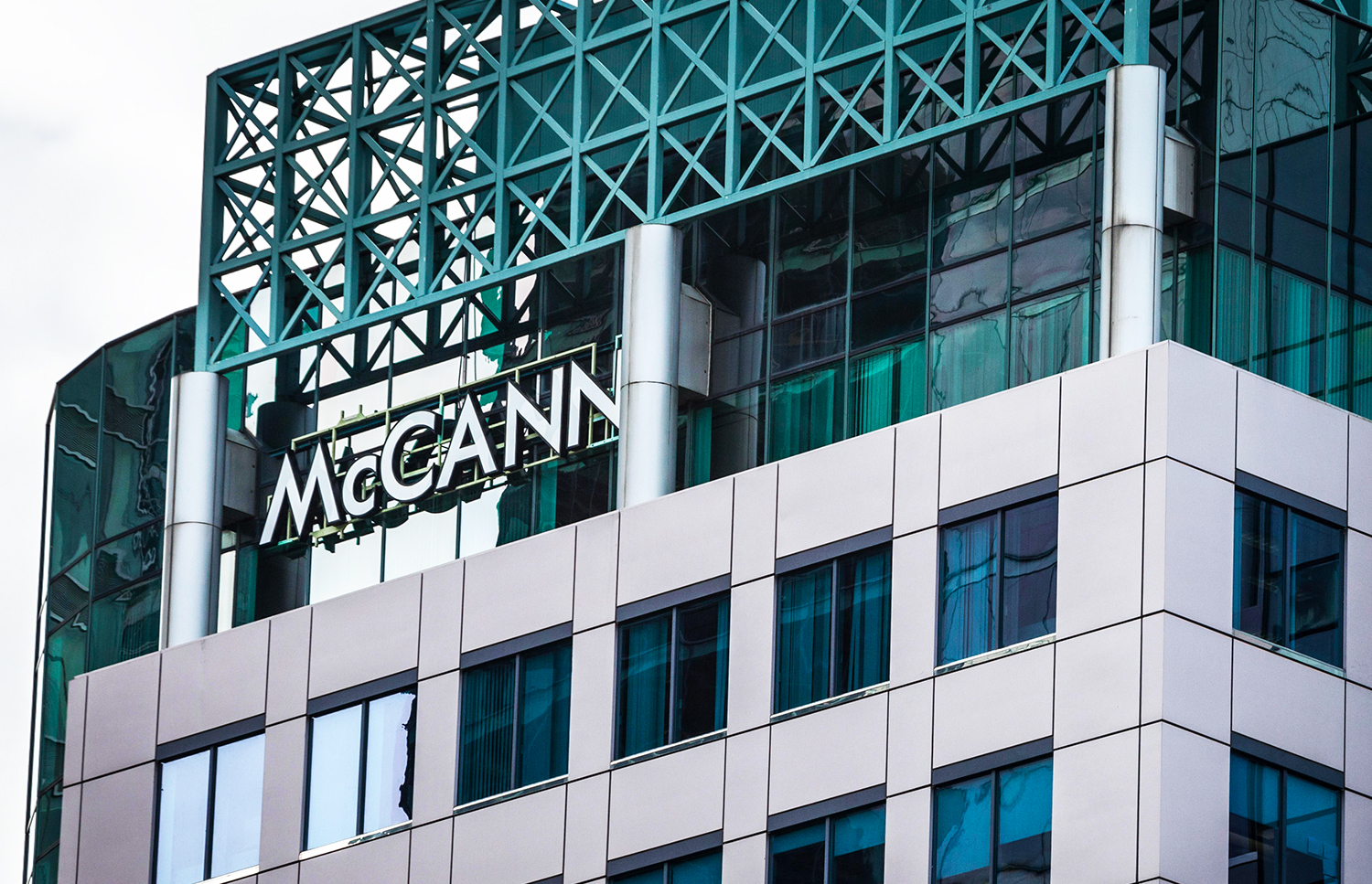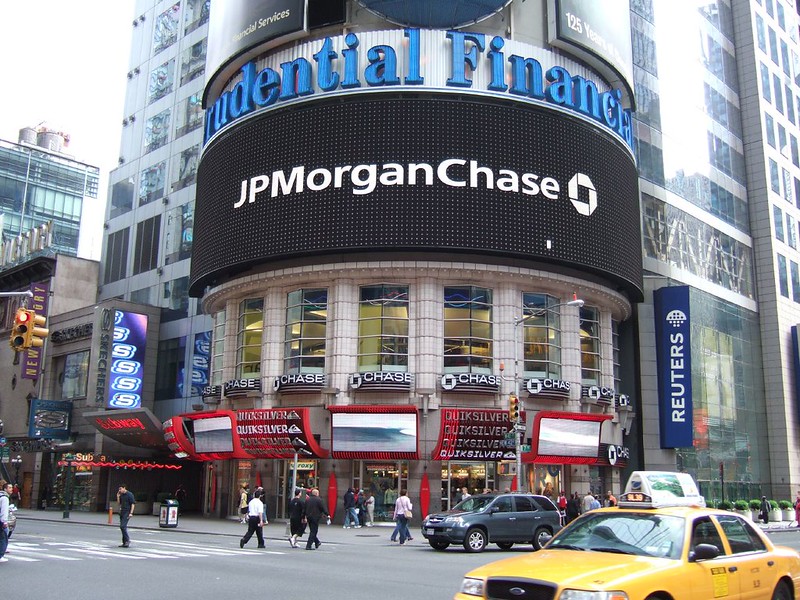Global advertising firm McCann is putting itself forward to continue working for the Saudi fossil fuel giant Aramco, DeSmog understands.
The US-based McCann currently works for Aramco across a number of its global agencies, under contracts that are set to expire early next year. According to industry insiders, the American-owned company has taken the decision to repitch for the work, despite Aramco’s record of pollution and greenwashing.
DeSmog has seen evidence that preparations are ongoing within McCann about repitching for the work, which is believed to be worth several million pounds a year. It’s not known if other firms have been invited to bid for the work.
“Here we go again: McCann is eager to slap another coat of green on Saudi Aramco, one of the world’s biggest polluters,” Alice Harrison, fossil fuel campaign lead at Global Witness told DeSmog.
“Oil giants are aggressively blocking progress on the urgent, sweeping reforms we need to keep our climate within safe limits. And they’re being aided and abetted by advertisers and PR professionals. McCann is putting itself on the wrong side of history by supporting one of the worst offenders of climate breakdown at this pivotal time in the climate response.”
An IPG employee told DeSmog that there was “growing unease” within the company about its work for Aramco. They added, however, that a lot of the firm’s employees “aren’t that aware of the Aramco account” and that the company is good at keeping quiet about its work for “controversial” clients.
McCann is one of several agencies that make up the Interpublic Group of Companies (IPG) – one of the four major holding companies in the global communications industry.
In October, IPG launched a new environmental sustainability policy through which “individual employees as well as IPG overall can improve our impact on the environment”.
The policy integrates IPG’s criteria for assessing new clients, launched a year earlier, which states that “IPG and its affiliates proactively review the climate impacts of prospective clients that operate in the oil, energy and utility sectors before accepting new work.”
This review process is based on a series of questions, including the prospective client’s emission reduction targets, its climate reporting protocols, and its work on “controversial” forms of oil and gas production. IPG’s policy document does not define what is meant by “controversial”.
The policy has been criticised for not applying these tests to existing clients, allowing McCann to continue working for the likes of Aramco.
Current IPG employees have told DeSmog they felt let down by the pledge. “You could drive an oil tanker through some of the loopholes in it,” said one.
According to the campaign group Clean Creatives, IPG has held at least 25 global contracts with fossil fuel firms since the start of 2022, the third most in the industry. IPG’s clients are understood to include fossil fuel giants Shell, Equinor, and ExxonMobil.
The IPG policy further states that: “we do not support or engage in marketing or communications aimed at influencing public policy to extend the life of fossil fuels.”
Industry insiders expressed doubts about whether this could realistically be achieved, given that fossil fuel advertising invariably also influences public policymakers.
The IPG policy includes a net zero target of 2040, though critics say this is not a true representation of their climate impact as it only includes emissions from business operations such as powering office buildings and staff travel, excluding the potential impact of protecting the reputations and selling the products of fossil fuel clients like Aramco.
The IPG policy further states that “no employee anywhere within IPG is ever required to work on an account that runs counter to their personal values.”
McCann and Aramco declined to comment. IPG did not respond to DeSmog’s request for comment.
Powered by Pollution
Aramco’s $2.3 trillion market value makes it the most valuable company in the world, logging sales of oil and gas worth hundreds of billions of dollars a year. The majority state-owned firm single-handedly contributes as much as 43 percent of Saudi Arabia’s GDP.
Aramco is estimated to be responsible for almost 5 percent of the entire world’s greenhouse gas emissions since 1965, making it the world’s largest corporate greenhouse gas emitter.
Aramco has vowed to raise crude production from 12 million barrels a day to 13 million barrels by 2027, one of the largest expansions of oil and gas production of any fossil fuel company in the world. This is despite the International Energy Agency stating that new oil and gas fields are incompatible with the target to limit global warming to 1.5C.
“The agency that wins Saudi Aramco’s business will be a key part of the world’s largest polluter’s plans to wreck the planet,” said Duncan Meisel, founder of Clean Creatives. “Saudi Aramco’s climate plans are effectively non-existent, and the reputational risks of associating with them are significant. Pitching for the business of the world’s biggest polluter will be throwing your agency’s climate credentials out the window, and your employees under the bus.”
DeSmog understands that McCann helped to craft Aramco’s latest tagline “Powered by How” that is seen and heard in adverts around the world. The “Powered by How” section of Aramco’s website describes the company’s efforts to tackle questions relating to energy demand such as “How do we deliver energy to a world that cannot stop?”
In 2020, Aramco removed adverts in which it boasted that it was “powering a more sustainable future”, after dozens of complaints to the UK’s Advertising Standards Authority (ASA).
Speaking at the United Nations General Assembly in September 2022, UN Secretary-General Antonio Guterres criticised “the massive public relations machine raking in billions to shield the fossil fuel industry from scrutiny.”
He added that “Fossil fuel interests need to spend less time averting a PR disaster – and more time averting a planetary one.”
McCann also holds other contracts with the Saudi state, working for the country’s chemical giant SABIC, its NEOM city development project, and the kingdom’s Ithra cultural centre (via its agency Jack Morton).
According to Clean Creatives, McCann also has contracts with oil and gas companies through its regional subsidiaries in Brazil (BR Distribuidora), Argentina (YPF), Chile (Copec) and Canada (Petro-Canada).
In September, it was revealed that McCann had won the global brand marketing account for the furniture giant Ikea. Since 2017, Ikea has supported the “We Mean Business” coalition, launching its support with a $44.6 million grant across four years. The coalition aims to “catalyse business and policy action” on climate change and to “drive collaborative leadership to solve the climate crisis”.
In October, it was reported that Ikea had joined more than 130 firms in urging world leaders to agree to a timeline to ditch fossil fuels at the upcoming COP28 summit.
Increasing scrutiny is being applied to the advertising, marketing and public relations industry and its work for fossil fuel clients. In September, it was revealed that global communications group Havas had won the bidding war to become Shell’s new ‘media buying’ (choosing where adverts are placed) agency after months of industry speculation and campaigns to discourage agencies from pitching. The account had previously been managed by UK-based WPP.
Clean Creatives called out IPG and other big fossil fuel advertising partners in a series of dystopian billboards and posters placed around New York, close to the offices of these firms, in September.
All of the posters carried the line: “It’s not your fault. But you can fix it, and we can support you.”
Subscribe to our newsletter
Stay up to date with DeSmog news and alerts







